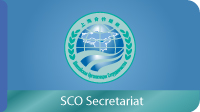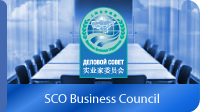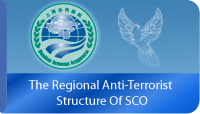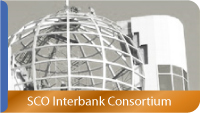|
|
 |
| A Meeting at Issyk Kul Lined Out Routes of SCO Advance |
| 16.06.2009 09:55 |
|
|
|
Dmitry Oshanin, InfoSCO correspondent
At the Issyk Kul Lake (Kirghizia) an international expert conference "SCO as a factor of Central Eurasia integration: the observer and neighboring states’ potential" organized by the regional branch of the Russian Institute of CIS countries and the Social Fund of Alexander Kniazev.
The participants of the conference (they are more than three tens of experts, political scientists, diplomats, security specialists, culture experts and journalists from the SCO member and observer states, as well as from the European Community) discussed the state and prospects of the Shanghai Cooperation Organization development in the context of new trends and processes in the region and around it.
As usual in the expert environment, so many debate participants, so many opinions. In lively, acute and at times heated discussions the Issyk Kul guests told of their vision of the most urgent problems of the Shanghai Cooperation Organization development, geopolitics, geoeconomics and the sphere of security in Central Eurasia.
In the age of global transformation of the world international relations system, crisis and inefficiency of most of the existing international organizations, in the first place – UN and OSCE, crisis of the whole system of international law, SCO is going through a period of its own identity search – approximately in this context many participants of the conference spoke.
According to the international relations expert, Doctor of Historical Sciences Rafik Saifullin (Tashkent), today SCO experiences in full the worldwide inertia of the multipolar world and new communicative centers formation. Particularly, he characterized SCO as a result of a new world order formation, and appreciable at that, an effective result of global changes in the dynamic world.
According to the conference organizer, Director of the Branch of the Russian Institute of CIS countries, Professor Alexander Kniazev, still the experience of the Shanghai Five that has become a basis for the present organization, demonstrated a high and in many ways unique potential of this alliance, showed the SCO member states' capability to search of rational and not conflicting with participants’ national interests compromises. "During the “Shanghai process” the member states succeeded to form a brand new type of relations not conditioned by side effect of political or ideological unity or conflicts,” Kniazev believes. “Unlike a block structure, the SCO countries succeeded to create a collaborative mechanism that provides for non-use of force or threat of force, excludes carrying out military activities impairing the stability in Central Eurasia. It is exactly this special feature of SCO that is a principal factor for attraction of a number of countries striving today to join SCO– Pakistan, India, Mongolia, and Iran.”
The participants of the Issyk Kul conference recognized that the very important function of SCO is now consolidation of the Central Eurasia countries around the values and ideas that must underlie the new world order.
As was noted during plenary meetings and discussions, in the structure of SCO itself today two “centers of force, centers of gravity” appeared. They are China and the Russian Federation. But in spite of SCO’s principal importance, particularly as a site of cooperation between Russia and PRC, the organization faces some problems on its way. Thus, according to Alexander Kniazev, the organization development is influenced by peculiarities of foreign-policy doctrines of Moscow and Beijing. And this foreign-policy agenda of the two indisputable leaders of the organization forms in many ways its agenda in whole. “In point of fact SCO is a mechanism of agreement capability of the two great powers – Russia and China,” Kniazev believes.
A number of experts speaking at the conference noted that at the current stage of the SCO development differences still remain in the organization member states’ approaches to key problems of the regional development. The cardinal problem of the organization development, according to Kniazev, is lack of clear conceptual basis. It is also connected with complexity of the establishment of multilateral cooperation mechanisms within SCO.
Particularly, as noted by the Chief Researcher of the Kazakhstan Institute for Strategic Studies (Astana), Doctor of political sciences Konstantin Syroyezhkin, practically all the projects, already implemented or being realized in the SCO area, have bilateral basis. “Meanwhile, military-political and economic possibilities, potential of the SCO member and observer states cooperation are so big, that it is high time for many and many large scale projects to be implemented in the multilateral format. And only by means of such multilateral projects it will be possible to ensure economic growth of each member state and the whole organization,” Syroyezhkin is sure.
Rich in reserves of energy and natural resources, powerful scientific, technical and production potential, cheap and sufficiently qualified human resources, SCO is capable to become one of the influential regional organizations in the world, which was underlined more than once at the conference. And in spite of the global financial and economic crisis at that.
The Russian expert, Doctor of Economic Science Aza Migranian believes that in conditions of crisis there are certain hopes that in an emergency the question of SCO’s self-definition can be solved as quickly as possible. “It would enable the organization to work out a long term strategy of its development,” said Migranian.
The leading researcher of the International Institute for Central Asian Studies in XUAR of PRC Xu Xunpin (Urumqi) agreed with his colleague’s opinion. Considering in her report SCO’s energy, communication and investment possibilities capable to become factors for the organization economic growth, she told several “recipes” elaborated by the Chinese economists specially for SCO.
“In the first place it is necessary to strengthen cooperation between the SCO member states in the field of transport and communications,” Xu Xunpin believes. “The Chinese say: “If you want to grow rich, firstly repair roads.” Only with developed roads it is possible to make labor and material resources turnover and only then it is possible to successfully advance cooperation and develop the regional economy.”
Furthermore, according to her, it is necessary to speed up the SCO member states cooperation development in the sphere of energy and communication base construction. It will help to attract investment, increase employment opportunities, will have a stimulating effect for joint productions development and activation, which is in the tideway of anti-crisis measures worked out in every state of the organization.
It is also necessary to intensify cooperation in the financial field. According to Xu Xunpin, the advanced by some specialists idea of the SCO Anti-Crisis Fund establishment deserves full consideration. “The SCO Interbank Association showed its active role in rendering aid for the economic development of each member of the organization; however it hardly complies with requirements of the regional economic cooperation. Keeping in mind the perspective, for further promotion of the regional economic cooperation and solving the question of capital circulation channels in the region it is necessary to discuss the plan of founding a Development Bank of SCO,” the Chinese analyst believes.
Creation of the Shanghai Cooperation Organization Development Fund intended for multilateral anti-crisis programs financing can contribute to the SCO member states economic potential growth as well.
Advantages of the member states complementarity in the land, technical, financial, and market aspects, the deepening cooperation in agriculture, exchange of experience between entrepreneurs and scientists of the SCO member states are among other economic measures, suggested by the Chinese party for the SCO early integration.
“In the Chinese language the word “crisis” also has another meaning – “chance”,” Xu Xunpin underlined. “This chance must be in full used by SCO. If we find a possibility to be in full control of the situation and to manage it, the result will be certainly favorable ".
Deputy Director of the Center for Strategic Research under the President of Tajikistan, Professor Saifullo Safarov (Dushanbe) noted in his speech that SCO offers a good opportunity not only for such great powers as Russia and China, but also for not large states of Central Asia. “For example, water power resources of Tajikistan and Kirghizia, oil production and gas industries of Kazakhstan and Russia can entirely satisfy
China’s requirements. Thereby the exporting countries will successfully solve the problems of their sales marketing development,” said the Tajik expert.
“SCO is one of the few regional organizations having economic development in reserve due to availability of a closed cycle of manufacturers and consumers,” said the Member of the Institute of political and international studies of MFA of Iran Parvin Moazami Goudarzi (Teheran). “The observer states’ entry into it – Iran, Pakistan, India, Mongolia, and afterwards that of other states showing interest in the organization, will for sure increase SCO's self-sufficiency. Iran’s economic potential can especially favor it with its hydrocarbon reserves and switching resources. Moreover, just Iran’s entry can tip the balance in SCO’s favor in matters of energy security assurance because it will concentrate lion's share of the Eurasian continent’s energy resources within one regional organization. In its turn it will just increase SCO’s political heft.”
The Issyk Kul conference participants devoted a lot of time to discussion of the SCO regional security problems.
One of the critical problems of international activity and sphere of security for the Eurasian countries is still the crisis in Afghanistan. It was mentioned by many experts. Particularly, the noted Russian scientist- Afghanist, Professor of the Oriental Studies Department in Novosibirsk State University Vladimir Plastun thinks that SCO should work out its own concept of settlement in Afghanistan.
“This concept must include issues of intra Afghanistan negotiation process organization, identification and harmonization of common priorities with respect to Afghanistan, assistance in solving questions of economic restoration of Afghanistan, and not the own commercial and political interests,” said Vladimir Plastun. “Only healthy economy is capable to solve problems of terrorism and drug dealing the SCO states increasingly face. That is why the organization countries should negotiate the coordination of economic activities in Afghanistan in the interest of this country’s economic potential recovery and development, rejecting herewith their momentary interests".
Speaking about the regional security within SCO, Director of the International Institute for Central Asian Studies in XUAR of PRC, Professor Pan Zhiping (Urumqi) said that it substantially depends on Russia’s and China’s security and economic stability. “In its turn, these two superpowers further development will depend on progress in the neighboring regions socio-economic development,” Pan Zhiping expressed confidence. “Considering the SCO member states’ geographical extent and population size, this organization must try to become an essential structural component of the world order. As soon as the problems of standards of living in the SCO area are solved, this goal will become quite attainable.”
Speaking about prospects for the SCO expansion, the Uzbek expert Rafik Saifullin expressed his point of view with regard to the problem of self-identification of the organization member countries. According to him, in spite of more than five year history, to date “SCO’s final outlines have appeared incompletely yet, which is obvious for all the Shanghai Cooperation Organization participants.”
Rafik Saifullin emphasized that at the 13th SCO summit in Yekaterinburg, on the threshold of which the Issyk Kul conference had been convened, the Shanghai Six leaders will have to try once again to answer the question: what is expected from SCO both by its actors, and the whole world community that today can not but take into consideration such a powerful, global factor as the Shanghai Cooperation Organization had time to prove itself to be. For SOC’s leaders – Russia and China – the SCO summit in Yekaterinburg will become a good opportunity to confirm their pretensions. For other countries – an opportunity to diversify their development ways and scenarios. For the observer states the participation in the Yekaterinburg summits will allow to increase their own “ego” and once again appraise prospects to prove useful for SCO.”
Following the Issyk Kul conference a communiqué was developed, and the forum organizers intend to inform of its main provisions the audience of the SCO Summit-2009 in Yekaterinburg.
Issyk Kul–Moscow
|
|
* Реестр иностранных средств массовой информации, выполняющих функции иностранного агента:
Голос Америки, Idel.Реалии, Кавказ.Реалии, Крым.Реалии, Телеканал Настоящее Время, Azatliq Radiosi, PCE/PC, Сибирь.Реалии, Фактограф, Север.Реалии, Радио Свобода, MEDIUM-ORIENT, Пономарев Лев Александрович, Савицкая Людмила Алексеевна, Маркелов Сергей Евгеньевич, Камалягин Денис Николаевич, Апахончич Дарья Александровна, Medusa Project, Первое антикоррупционное СМИ, VTimes.io, Баданин Роман Сергеевич, Гликин Максим Александрович, Маняхин Петр Борисович, Ярош Юлия Петровна, Чуракова Ольга Владимировна, Железнова Мария Михайловна, Лукьянова Юлия Сергеевна, Маетная Елизавета Витальевна, The Insider SIA, Рубин Михаил Аркадьевич, Гройсман Софья Романовна, Рождественский Илья Дмитриевич, Апухтина Юлия Владимировна, Постернак Алексей Евгеньевич, Общество с ограниченной ответственностью Телеканал Дождь, Петров Степан Юрьевич, Istories fonds, Шмагун Олеся Валентиновна, Мароховская Алеся Алексеевна, Долинина Ирина Николаевна, Шлейнов Роман Юрьевич, Анин Роман Александрович, Великовский Дмитрий Александрович, Альтаир 2021, Ромашки монолит, Главный редактор 2021, Вега 2021
* Сведения реестра НКО, выполняющих функции иностранного агента:
Фонд защиты прав граждан Штаб, Институт права и публичной политики, Лаборатория социальных наук, Фонд по борьбе с коррупцией, Альянс врачей, НАСИЛИЮ.НЕТ, Мы против СПИДа, Фонд защиты прав граждан, СВЕЧА, Гуманитарное действие, Открытый Петербург, Феникс ПЛЮС, Лига Избирателей, Правовая инициатива, Гражданская инициатива против экологической преступности, Фонд борьбы с коррупцией, Гражданский Союз, Российский Красный Крест, Центр Хасдей Ерушалаим, Центр поддержки и содействия развитию средств массовой информации, Горячая Линия, В защиту прав заключенных, Институт глобализации и социальных движений, Центр социально-информационных инициатив Действие, ВМЕСТЕ, Благотворительный фонд охраны здоровья и защиты прав граждан, Благотворительный фонд помощи осужденным и их семьям, Фонд Тольятти, Новое время, Серебряная тайга, Так-Так-Так, центр Сова, центр Анна, Проект Апрель, Самарская губерния, Эра здоровья, правозащитное общество Мемориал, Аналитический Центр Юрия Левады, Издательство Парк Гагарина, Фонд имени Андрея Рылькова, Сфера, Центр защиты СИБАЛЬТ, Уральская правозащитная группа, Женщины Евразии, Рязанский Мемориал, Екатеринбургское общество МЕМОРИАЛ, Институт прав человека, Фонд защиты гласности, Российский исследовательский центр по правам человека, Дальневосточный центр развития гражданских инициатив и социального партнерства, Пермский региональный правозащитный центр, Гражданское действие, Центр независимых социологических исследований, Сутяжник, АКАДЕМИЯ ПО ПРАВАМ ЧЕЛОВЕКА, Частное учреждение Совета Министров северных стран, Центр развития некоммерческих организаций, Гражданское содействие, Центр Трансперенси Интернешнл-Р, Центр Защиты Прав Средств Массовой Информации, Институт развития прессы - Сибирь, Фонд поддержки свободы прессы, Гражданский контроль, Человек и Закон, Общественная комиссия по сохранению наследия академика Сахарова, Информационное агентство МЕМО. РУ, Институт региональной прессы, Институт Развития Свободы Информации, Экозащита!-Женсовет, Общественный вердикт, Евразийская антимонопольная ассоциация, Чанышева Лилия Айратовна, Сидорович Ольга Борисовна, Таранова Юлия Николаевна, Туровский Александр Алексеевич, Васильева Анастасия Евгеньевна, Ривина Анна Валерьевна, Бурдина Юлия Владимировна, Бойко Анатолий Николаевич, Гусева Ольга Андреевна, Дугин Сергей Георгиевич, Пивоваров Андрей Сергеевич, Писемский Евгений Александрович, Аверин Виталий Евгеньевич, Барахоев Магомед Бекханович, Шевченко Дмитрий Александрович, Жданов Иван Юрьевич, Рубанов Роман Викторович, Шарипков Олег Викторович, Мальсагов Муса Асланович, Мошель Ирина Ароновна, Шведов Григорий Сергеевич, Пономарев Лев Александрович, Каргалицкий Борис Юльевич, Созаев Валерий Валерьевич, Исакова Ирина Александровна, Исламов Тимур Рифгатович, Романова Ольга Евгеньевна, Щаров Сергей Алексадрович, Цирульников Борис Альбертович, Халидова Марина Владимировна, Людевиг Марина Зариевна, Федотова Галина Анатольевна, Паутов Юрий Анатольевич, Верховский Александр Маркович, Пислакова-Паркер Марина Петровна, Кочеткова Татьяна Владимировна, Чуркина Наталья Валерьевна, Акимова Татьяна Николаевна, Золотарева Екатерина Александровна, Рачинский Ян Збигневич, Жемкова Елена Борисовна, Гудков Лев Дмитриевич, Илларионова Юлия Юрьевна, Саранг Анна Васильевна, Захарова Светлана Сергеевна, Аверин Владимир Анатольевич, Щур Татьяна Михайловна, Щур Николай Алексеевич, Блинушов Андрей Юрьевич, Мосин Алексей Геннадьевич, Гефтер Валентин Михайлович, Симонов Алексей Кириллович, Флиге Ирина Анатольевна, Мельникова Валентина Дмитриевна, Вититинова Елена Владимировна, Баженова Светлана Куприяновна, Исаев Сергей Владимирович, Максимов Сергей Владимирович, Беляев Сергей Иванович, Голубева Елена Николаевна, Ганнушкина Светлана Алексеевна, Закс Елена Владимировна, Буртина Елена Юрьевна, Гендель Людмила Залмановна, Кокорина Екатерина Алексеевна, Шуманов Илья Вячеславович, Арапова Галина Юрьевна, Пастухова Анна Яковлевна, Прохоров Вадим Юрьевич, Шахова Елена Владимировна, Подузов Сергей Васильевич, Протасова Ирина Вячеславовна, Литинский Леонид Борисович, Лукашевский Сергей Маркович, Бахмин Вячеслав Иванович, Шабад Анатолий Ефимович, Сухих Дарья Николаевна, Орлов Олег Петрович, Добровольская Анна Дмитриевна, Королева Александра Евгеньевна, Смирнов Владимир Александрович, Вицин Сергей Ефимович, Золотухин Борис Андреевич, Левинсон Лев Семенович, Локшина Татьяна Иосифовна, Орлов Олег Петрович, Полякова Мара Федоровна, Резник Генри Маркович, Захаров Герман Константинович
* Единый федеральный список организаций, в том числе иностранных и международных организаций, признанных в соответствии с законодательством Российской Федерации террористическими:
Высший военный Маджлисуль Шура, Конгресс народов Ичкерии и Дагестана, Аль-Каида, Асбат аль-Ансар, Священная война, Исламская группа, Братья-мусульмане, Партия исламского освобождения, Лашкар-И-Тайба, Исламская группа, Движение Талибан, Исламская партия Туркестана, Общество социальных реформ, Общество возрождения исламского наследия, Дом двух святых, Джунд аш-Шам, Исламский джихад, Аль-Каида, Имарат Кавказ, АБТО, Правый сектор, Исламское государство, Джабха аль-Нусра ли-Ахль аш-Шам, Народное ополчение имени К. Минина и Д. Пожарского, Аджр от Аллаха Субхану уа Тагьаля SHAM, АУМ Синрике, Муджахеды джамаата Ат-Тавхида Валь-Джихад, Чистопольский Джамаат, Рохнамо ба суи давлати исломи, Террористическое сообщество Сеть, Катиба Таухид валь-Джихад, Хайят Тахрир аш-Шам, Ахлю Сунна Валь Джамаа
* Перечень общественных объединений и религиозных организаций в отношении которых судом принято вступившее в законную силу решение о ликвидации или запрете деятельности:
Национал-большевистская партия, ВЕК РА, Рада земли Кубанской Духовно Родовой Державы Русь, Асгардская Славянская Община Асгардской Веси Беловодья, Славянская Община Капища Веды Перуна, Мужская Духовная Семинария Староверов-Инглингов, Нурджулар, К Богодержавию, Таблиги Джамаат, Русское национальное единство, Национал-социалистическое общество, Джамаат мувахидов, Объединенный Вилайат Кабарды, Балкарии и Карачая, Союз славян, Ат-Такфир Валь-Хиджра, Пит Буль, Национал-социалистическая рабочая партия России, Славянский союз, Формат-18, Благородный Орден Дьявола, Армия воли народа, Национальная Социалистическая Инициатива города Череповца, Духовно-Родовая Держава Русь, Русское национальное единство, Древнерусской Инглистической церкви Православных Староверов-Инглингов, Русский общенациональный союз, Движение против нелегальной иммиграции, Кровь и Честь, О свободе совести и о религиозных объединениях, Омская организация Русское национальное единство, Северное Братство, Клуб Болельщиков Футбольного Клуба Динамо, Файзрахманисты, Мусульманская религиозная организация п. Боровский, Община Коренного Русского народа Щелковского района, Правый сектор, Украинская национальная ассамблея, Украинская повстанческая армия, Тризуб им. Степана Бандеры, Украинская организация «Братство», Свидетели Иеговы, О противодействии экстремистской деятельности, РЕВТАТПОД, Артподготовка, Штольц, В честь иконы Божией Матери Державная, Сектор 16, Независимость, Организация футбольных болельщиков «Фирма», Молодежная правозащитная группа МПГ, Курсом Правды и Единения, Каракольская инициативная группа, Автоград Крю, Союз Славянских Сил Руси, Алля-Аят, Благотворительный пансионат Ак Умут, Русская республика Русь, Арестантское уголовное единство, Башкорт, Нация и свобода, W.H.С., Фалунь Дафа, Иртыш Ultras, Русский Патриотический клуб-Новокузнецк/РПК, Сибирский державный союз, Фонд борьбы с коррупцией, Фонд защиты прав граждан, Штабы Навального
|






















Leave a comment